What’s your stance on Wikipedia, the free, open content online encyclopedia?
Students are often discouraged or disallowed from citing Wikipedia as a source, a bias that a Wikipedia entry titled “Wikipedia should not be considered a definitive source in and of itself” supports:
As a user-generated source, it can be edited by anyone at any time, and any information it contains at a particular time could be vandalism, a work in progress, or simply incorrect. Biographies of living persons, subjects that happen to be in the news, and politically or culturally contentious topics are especially vulnerable to these issues…because Wikipedia is a volunteer-run project, it cannot constantly monitor every contribution. There are many errors that remain unnoticed for hours, days, weeks, months, or even years.
(Another entry counsels those who would persist to cite the exact time, date, and article version they are referencing.)
Wikipedia has a clearly stated policy prohibiting contributors from close paraphrasing or outright copying and pasting from outside sources, though in a bit of a circle-in-a-circle situation, several noted authors and journalists have been caught plagiarizing Wikipedia articles.
A list of Wikipedia controversies, published on — where else? — Wikipedia is a hair raising litany of political sabotage, character assassination, and “revenge edits”. (The list is currently substantiated by 338 reference links, and has been characterized as in need of update since October 2021, owing to a lack of edits regarding the “controversy about Mainland Chinese editors.”)
It can be a pretty scary place, but University of Michigan senior Annie Rauwerda, creator of the Instagram account Depths of Wikipedia is unfazed. As she wrote in an article for the tech publication Input:
Wikipedia is a splendidly extensive record of almost everything that matters; a modern-day Library of Alexandria that’s free, accessible, and dynamic. But Wikipedia is characterized not only by what it is but also by what it is not. It’s not a soapbox, a battleground, nor a blog.
It’s also becoming famous as Rauwerda’s playground, or more accurately, a packed swap shop in which millions of bizarre items are tucked away.
If your schedule limits the amount time you can spend down its myriad rabbit holes, Rauwerda will do the digging for you.
Turning a selection of Wikipedia excerpts into a collage for a friend’s quaran-zine inspired her to keep the party going with screenshots of oddball entries posted to a dedicated Instagram account.
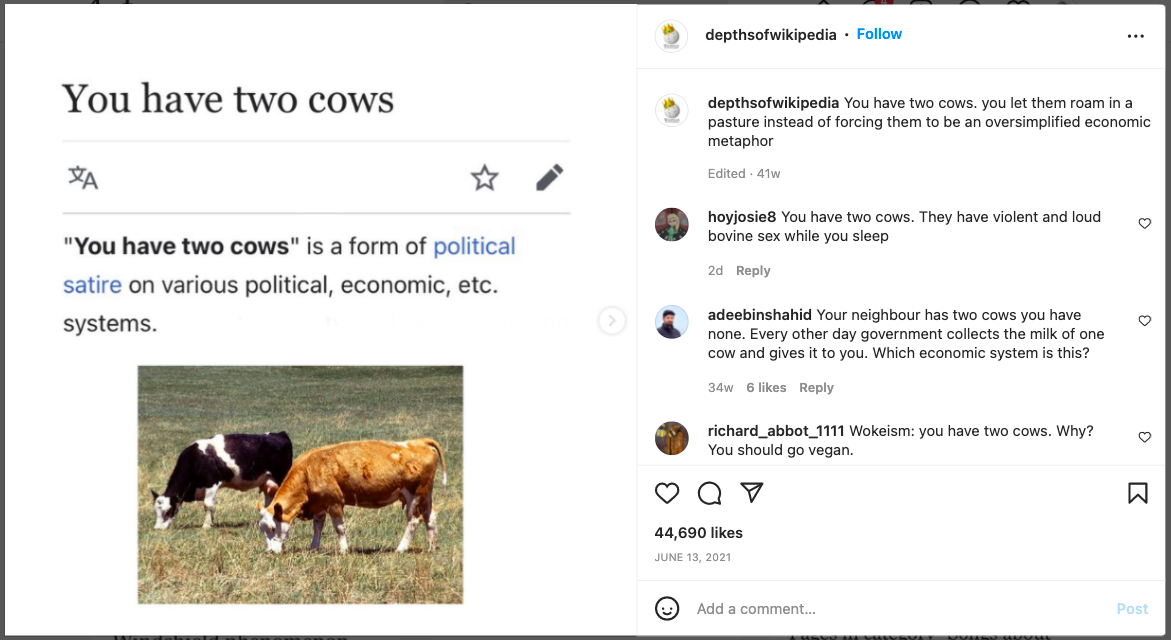
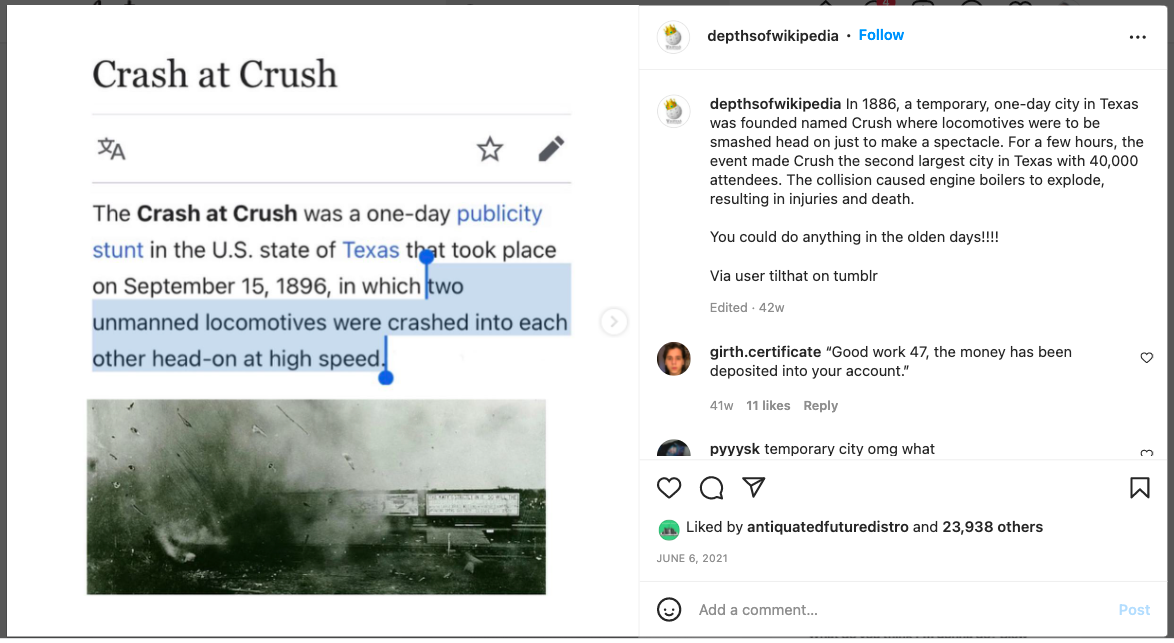
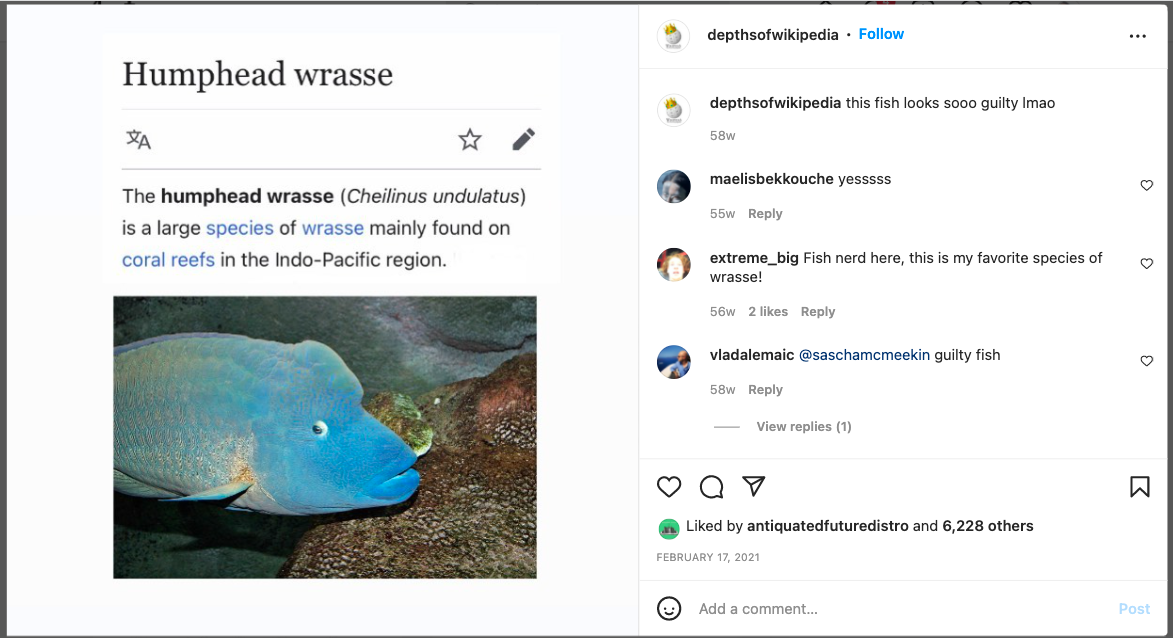
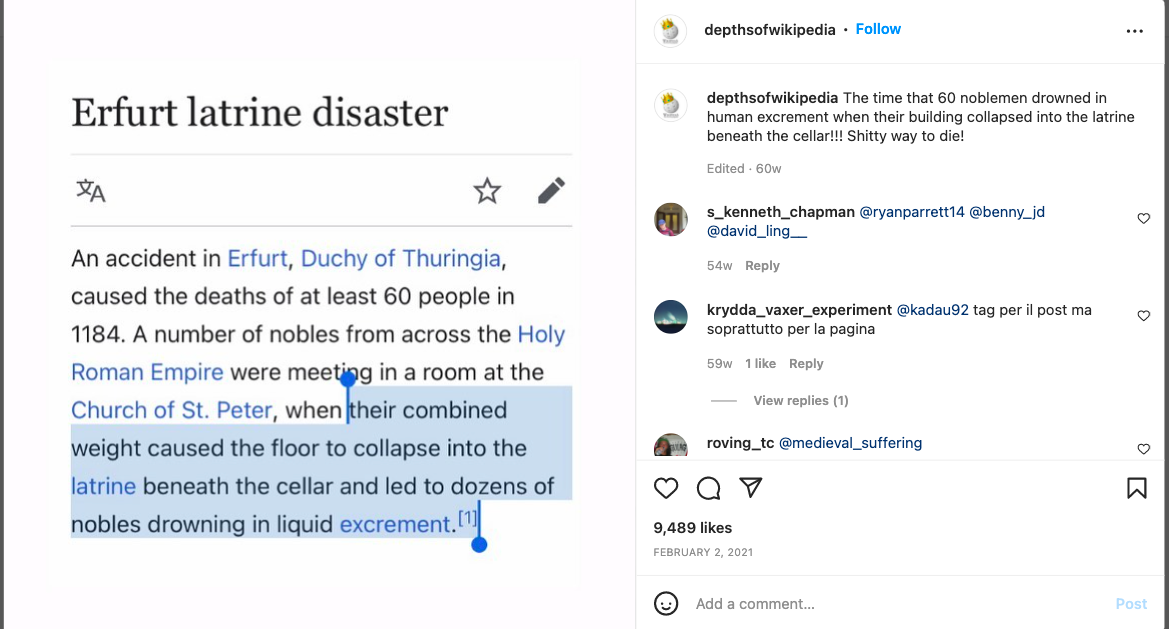
Her followers don’t seem to care whether a post contains an image or not, though the neuroscience major finds that emotional, short or animal-related posts generate the most excitement. “I used to post more things that were conceptual,” she told Lithium Magazine, “like mind-blowing physics concepts, but those didn’t lend themselves to Instagram as well since they require a few minutes of thinking and reading.”
The bulk of what she posts come to her as reader submissions, though in a pinch, she can always turn to the “holy grail” — Wikipedia’s own list of unusual articles.
In addition to Instagram, her discoveries find their way into an infrequently published newsletter, and onto TikTok and Twitter, where some of our recent faves include the definition of humster, a list of games that Buddha would not play, and the Paul O’Sullivan Band, “an internationally based, pop-rock band consisting of four members, all of whom are named Paul O’Sullivan.”
Along the way, she has found ways to give back, co-hosting a virtual edit-a-thon and bringing some genuine glamour to a livestreamed Wikipedia trivia contest.
And she recently authored a serious article for Slate about Russians scrambling to download a 29-gigabyte file containing Russian-language Wikipedia after the Federal Service for Supervision of Communications, Information Technology and Mass Media (Roskomnadzor) threatened to block it over content related to the invasion of Ukraine.
(You can read more about how that’s going on Wikipedia…)
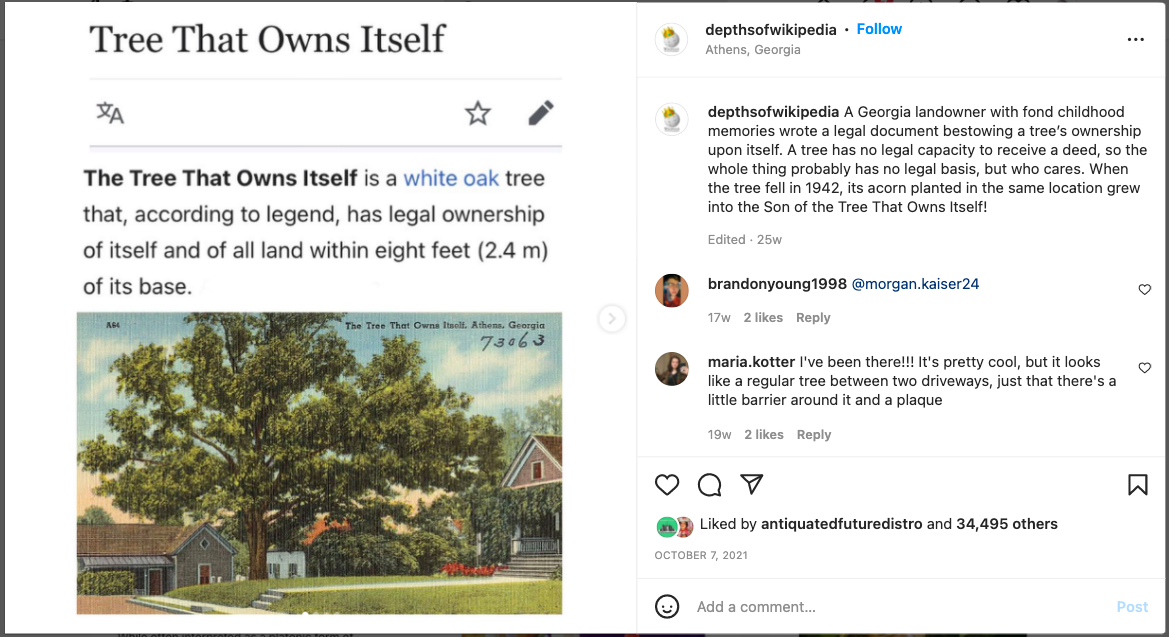
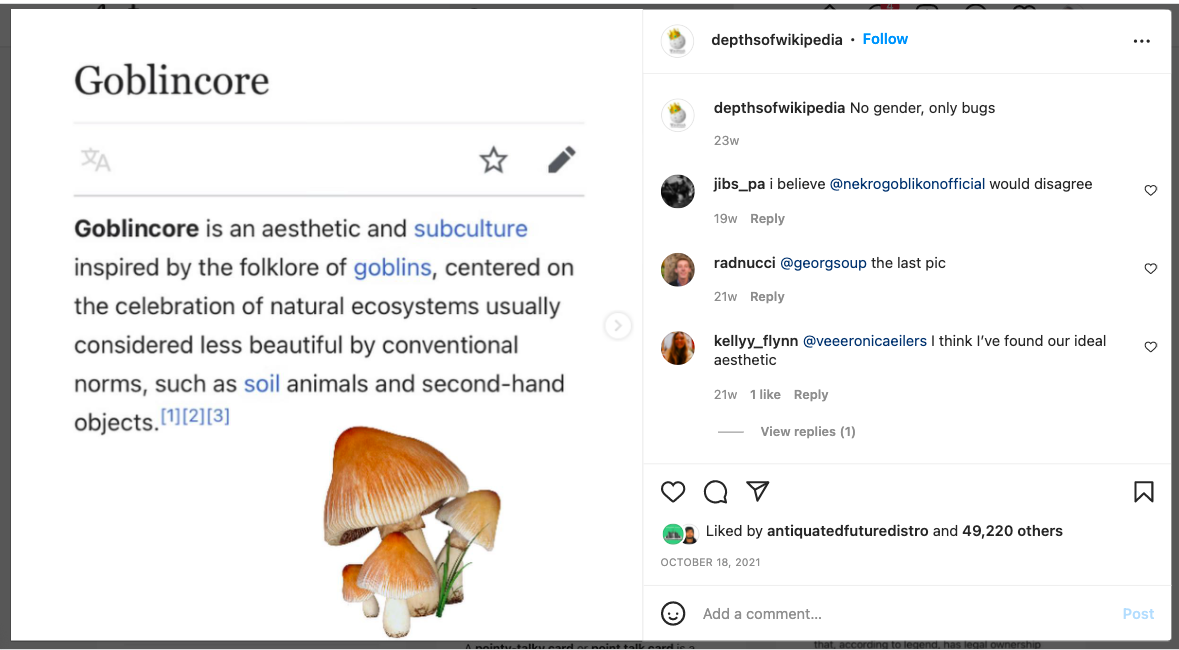
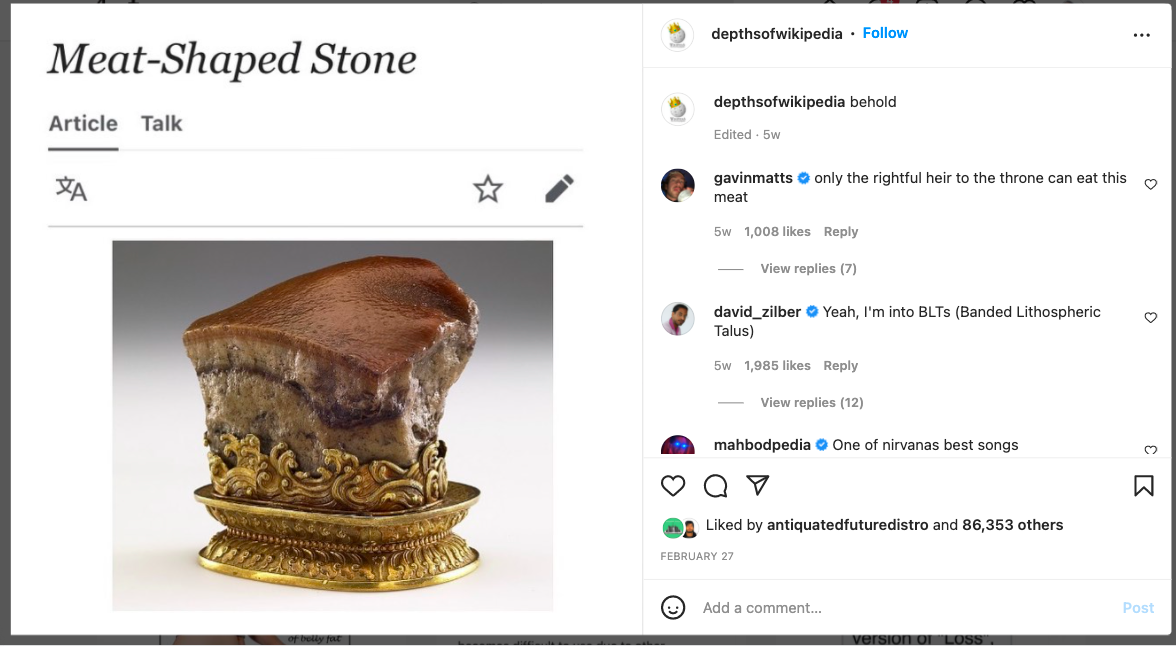
Submit a link to Wikipedia page for possible inclusion on the Depths of Wikipedia here.
Follow Annie Rauwinda’s Depths of Wikipedia on Instagram and TikTok.
Related Content
Listen to Wikipedia: A Web Site That Turns Every Wikipedia Edit Into Ambient Music in Real Time
- Ayun Halliday is the Chief Primatologist of the East Village Inky zine and author, most recently, of Creative, Not Famous: The Small Potato Manifesto. Follow her @AyunHalliday.


Leave a Reply